The Eagle's Last Flight
by Ron Standerfer
Ron Standerfer was born and raised in Belleville, Illinois, a town across the Mississippi river from St. Louis, Missouri. While attending the University of Illinois he took his first airplane ride in a World War II-Vintage B-25 bomber assigned to the local ROTC detachment. It was a defining moment in his life. Weeks later, he left college to enlist in the Air Force's aviation cadet program. He graduated from flight training at the age of twenty and was commissioned as a Second Lieutenant.
Another defining moment occurred early in his career. In August 1957, he participated in an atomic test at Yucca Flat, Nevada. Standing on an observation platform eight miles from ground zero, he watched the detonation of an atomic bomb code named Smoky. The test yielded an unexpected 44 kilotons---more than twice the size of the bomb dropped on Nagasaki. He never forgot Smoky, and the memory of that experience weighed heavily on his mind when he wrote The Eagle's Last Flight, a semi-autobiographical novel about his life as an Air Force fighter pilot during the Cold War.
Ron's twenty seven-year Air Force career spanned the Cold War years between 1954 and 1981. During that time, he flew a variety of high performance fighters including the F-100, F-102, F-105, F-4 and A-7. He flew over 200 combat missions during the Vietnam conflict and was awarded two Silver Stars, thirteen Air Medals and the Purple Heart. The latter was received after he was shot down over Tchepone, Laos in 1969. He retired from the Air Force just as the Cold War ended as a full Colonel after tours in the Pentagon and Tactical Air Command headquarters in Virginia.
He continued to pursue his passion for aviation after retiring. He was a marketing director for Falcon Jet Corporation, a subsidiary of the French aerospace manufacturer Dassault Aviation. In that capacity, he was responsible for launching the marketing campaign for the Falcon 900, a long-range business jet. Later, he was an owner of an aircraft charter and management company in Elmira, NY and also a marketing consultant.
Ron is a prolific writer and journalist. He appeared on WOR TV in New York City during the first days of the Persian Gulf War, providing real time analysis of the air war as it progressed. His book reviews and syndicated news articles are published regularly in the online and print news media, as well as in military journals.
These days Ron and his wife Marzenna, the daughter of a distinguished theatrical family in Poland, spend their time in their homes in Gulf Stream, Florida and Warsaw.
Author Links
About The Book
Book Genre: Fiction, Military History/Aviation
Publisher:The Pelican Communications Group (A proud Indie publisher)
Release Date: September 9, 2013
Buy Link(s):
Book Description:
Skip O’Neill lies dying of leukemia in a New York hospital, determined to live until the new millennium. His wasted body shows scant evidence of the man he once was—an Air Force fighter pilot and decorated combat veteran.
O’Neill’s first assignment as a young lieutenant places him among hard drinking World War II—and Korean War—era fighter pilots who quickly teach him their ways. He almost washes out of pilot training but is persistent and manages to graduate. In Vietnam, he proves to be a skillful and courageous pilot who faces dangers of all kinds with equanimity. But the greatest—and most deadly danger—materializes years after O’Neill volunteers to be an observer at an atomic test site.
In the end, O’Neill decides that when his time comes, he will dash at it fearlessly. He anticipates being greeted by departed friends—but what awaits him is something totally unexpected.
Excerpt:
Skip never forgot his experience at Camp Desert Rock. Years later, he
ran into
a Marine at the officers club who had participated in one of the
tests and the two of them compared notes about what they had
experienced.
‘‘It was the damnedest thing,’’ the Marine said, ‘‘There
we were, almost at ground zero. I mean we were sitting in trenches,
three miles away. Three miles! Not on some piddley-assed platform
eight miles away, like those Air Force and Navy pussies.’’
Skip let that comment pass, based on his longstanding belief that
arguing with a Marine who has been drinking, was not a smart thing to
do.
‘‘And get this…right after the blast we were supposed to leap
out of the trenches so we could be moved up to a point three hundred
yards away.’’
‘‘Three hundred yards?’’ Skip exclaimed. ‘‘Why so close,
for God’s sake?’’ ‘‘Why? To set up a mock defensive
perimeter against anyone who theoretically
might have survived the attack.’’
‘‘Yeah right…like anybody would.’’
‘‘Exactly. When we moved into position, there was nothing to see,
much less to defend against. I mean nothing, just a few piles of
molten metal here and there. And, oh yeah, the charred flesh of sheep
that were used in the test.’’
‘‘Sheep?’’
‘‘Yeah, sheep. There I was with my men, tromping around in this
fallout shit…you know…that white ash that crunches under your
feet?’’
‘‘Fallout at three hundred yards, that stuff had to be big time
radioactive.’’ ‘‘Right, but of course I wasn’t afraid,
because afterwards we were gonna get
brushed off with brooms and hosed down. I mean, brooms, man. How dumb
could we have been?’’
‘‘Anyway,’’ he continued, ‘‘about the same time, this guy
shows up over the top of the hill, all dressed out in some kind of
shiny, silver, protective suit with a ventilator and face mask. When
he sees us, he comes roaring over, like someone lit a rocket in his
ass. What are you guys doing here? Where is your protective gear? He
yelled. All the time he’s talking, he’s pointing this Geiger
counter thing at us, which is going click, click, click.
I yelled back, we’re just doing some reconnoitering,
getting ready to kick some ass.
Well, you guys shouldn’t be here, he replied. Are you crazy?
Well, yeah. I told him. We are crazy. I mean…we’re Marines, which
is basi- cally the same thing…right?
It turns out this dude was some kind of technician from the Atomic
Energy Commission. They were the guys who were supposed to be running
the tests. And, get this…he didn’t even know the military was
operating that close to ground zero!’’
‘‘No way,’’ Skip said.
‘‘Yep, and when I got him settled down, I found out that he
wasn’t pissed at all. He was just scared…for us. That should have
been my first clue.’’
‘‘Don’t take this the wrong way,’’ Skip said, ‘‘but it
sounds to me like the gov- ernment was using you guys as guinea
pigs.’’
‘‘Guinea pigs?’’ The Marine snorted derisively. ‘‘We
should have been so lucky. The laboratory animals they used in those
tests were washed down with soap and water afterwards, and their
health was carefully monitored. It’s been fif- teen years since
that test and nobody has asked me shit about my health. It’s like
it never happened!’’
‘‘Or like you guys were expendable, so it didn’t matter,’’
Skip offered
‘‘We were all expendable. You, me, and the 250,000
or so troops who partici- pated in all those years of testing. And
that, my friend, is the way it is.
Author Interview
What inspired you to write the Eagle's last flight?
After I retired from the Air Force I learned that people seemed to enjoy hearing my stories about the life I led as a fighter pilot. Many described me as a " good storyteller" and some even went so far as to suggest that I write a book about my experiences. This sounded like a very crazy idea to me at first but eventually, I said to myself why not write a book? Being retired I had more than enough time on my hands to do it and so I thought to myself why not give it a try? The rest is history.
When or at what age did you know you wanted to be a writer?
To be perfectly honest with you, I'm not sure I consider myself a writer even to this day., I am still a good story teller that's for sure, but a writer, that's another story (excuse the pun).
What is the earliest age you remember reading your first book?
My parents tell me I was an early reader. I really don't remember. For sure I was deep into books by high school and definitely in college. I probably read a few books even in junior high school.
What genre of books do you enjoy reading?
I particularly enjoy autobiographies and historical novels, especially written about people and places of previous times. There is so much to learn from books like that, things that somehow or another I manage to apply to my own life.
What is your favorite book?
That's like asking someone who is their favorite child or grandchild. There are so many books on my favorite list. Anything written by Hemingway is at the top of my list, especially For Whom the Bell Tolls, The Sun Also Rises, and the Snows of Kilimanjaro which in my opinion is the best short story ever written. These days I still read and reread The Alchemist and the Fifth Mountain by Paolo Coelho.
You know I think we all have a favorite author. Who is your favorite author and why?
Obviously my answer is Ernest Hemingway. I like his clean, crisp narrative style which I suspect he developed in Paris in the 1920s writing as a reporter for the Herald Tribune.
If you could travel back in time here on earth to any place or time. Where would you go and why?
My first choice would be Paris in the 1920s hanging out with Hemingway, Fitzgerald and all the other famous writers and artists. I can only imagine the times they had and what it was like to live their lifestyle. My other choice would be flying for the Flying Tigers in China as a mercenary in the early 1940s.
When writing a book do you find that writing comes easy for you or is it a difficult task?
Difficult does not even begin to describe the agony I go through when I write. To begin with, I am a perfectionist which is not good for writing a first draft. The problem is when I get two or three sentences down on paper I looked at them and decide they are not right and begin to correct them. This makes for it extremely tedious process when you're writing whole paragraphs and pages.
Do you have any little fuzzy friends? Like a dog or a cat? Or any pets?
All dogs and cats are my friend. Unfortunately, my wife and I travel too much to own a dog or cat but, I do have my ways of borrowing pets just to have them around. As I am writing this, for example a lovely little Boston Terrier named Greta is lying on the rug near my feet looking up at me admiringly. Well, maybe not admiringly, but let's just say we're both very happy at the moment. Greta belongs to a friend of mine. And she is welcome in my house any time
What is your "to die for", favorite food/foods to eat?
I try to watch my diet, but occasionally I like a good steak with baked potato and a glass or two of strong robust malbec red wine. I don't do that often but when I do, I tend to make it a celebration.
Do you have any advice for anyone that would like to be an author?
Yes, I have a lot of advice for beginning authors, more than I have room or time to write here. To begin with, writing is hard work, and you have to be organized and tough to succeed. You also have to believe in yourself and not listen to other writers who have had some small success writing, and for that reason only, try to convince you that you will not succeed like they did. That is nonsense. Secondly, I would avoid the large self publishing companies like the plague. They generally offer more services than you can possibly use, and in the end you will pay tons of money just to get the book on the market. And during the process, you will have almost zero artistic control over your book and eventually end up becoming an independent writer anyway.












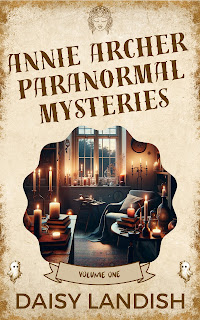

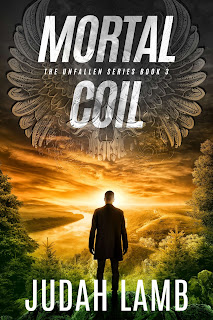









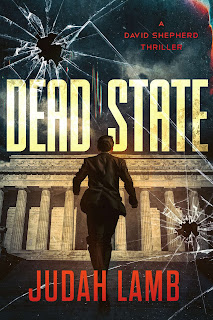

















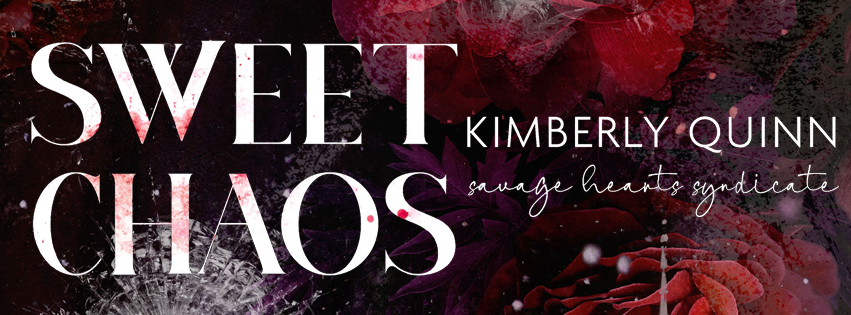



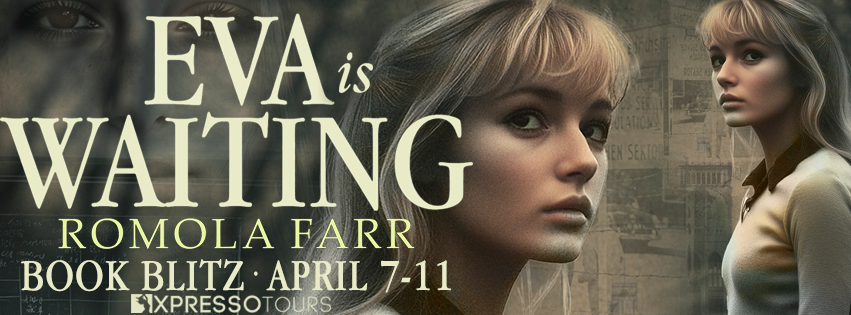































































1 comments:
Great post! -Pit Crew
Post a Comment